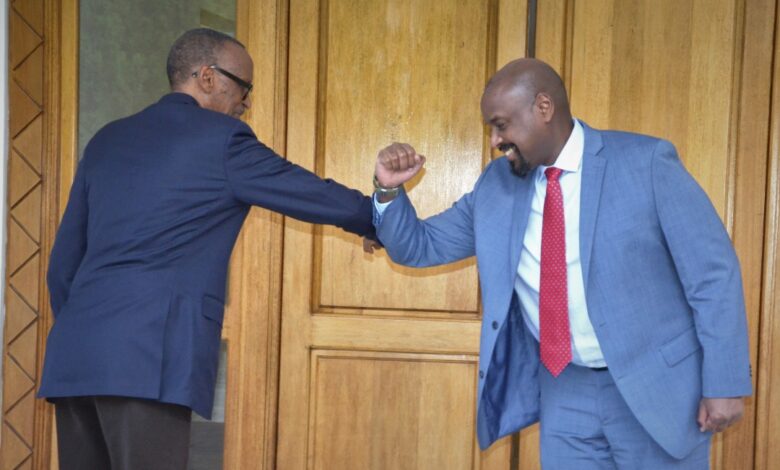DR Congo pacification bogged by Uganda’s unwillingness to fight M23 under EACRF arrangement
The renewed friendship between Uganda and Rwanda, and the ongoing warring between Rwanda’s Kagame and Tshisekedi of DRC, make the EACRF work and time while in DRC complicated.

The President of the Democratic Republic of Congo (DRC), Félix Antoine Tshisekedi, September last year presided over the signing of an agreement giving a green light for the deployment of the EAC Joint Regional Force, led by the Armed Forces of the DRC in Eastern DRC, to fight the negative forces (rebels and militias).
The East African Community Regional Force (EACRF) comprises up to 12,000 troops from Kenya, Burundi, Uganda, and South Sudan, and will operate under a six-month renewable mandate. It is mandated to fight local and regional militias operating in the eastern DRC, including the delicate March 23 (M23).
The deployment of the EACRF is looked at as a step closer to bringing peace to DRC if it so succeeds. But this feat is being hampered by the exhibited unwillingness by Uganda and Rwanda to engage M23 in a gunfight.
DRC for a long time has accused Uganda and Rwanda of supporting the stubborn rebel outfit that has caused havoc and destabilized eastern Congo.
At a time when the EACRF was starting to deploy in DRC, Gen Muhoozi Kainerugaba, the former overall commander of land forces (UPDF) said in a tweet that no one can fight M23, a rebel group who he described as ‘brothers’. He has offered support, at least morally, to M23, a contradiction of the official position of the UPDF and Uganda as a country.
Gen Muhoozi, who is the son of President Gen Yoweri Museveni, has once again offered moral support to M23 by tweeting that ‘in the current EACRF arrangement, UPDF will restrict itself to protecting the wanainchi of DRC and ensuring the continuation of the road projects.
Uganda is already operating in DRC fighting the Ugandan rebel outfit ADF under Operation Shuuja. Uganda is also building kilometres of tarmac roads from Uganda into DRC to facilitate trade.
He came short of saying that Uganda will not be in a position to engage the M23, the most resounding militia in that part of the mineral-rich country.
The UPDF has been hesitant to restrict Gen Muhoozi from making contradicting comments on critical issues of security and diplomacy because he wields a lot of power and influence, naturally because he is a First Son and harbours an interest to become president of Uganda.
In an area where Uganda and Rwanda have been accused of plundering and benefiting from the insecurity caused by M23 and other militias, it is understandable, judgingly, why Uganda and Rwanda are unwilling to fight M23 and bring peace in eastern DRC.
It was hoped that the EACRF would hugely benefit from Uganda and Rwanda’s vast geographical and military operational knowledge of eastern DRC but with this unwillingness to fight the destabilizers and enemy of peace, it is farfetched to see the regional force succeed where the UN’s MONUSC failed.
The renewed friendship between Uganda and Rwanda, and the ongoing warring between Rwanda’s Kagame and Tshisekedi of DRC, make the EACRF work and time while in DRC complicated.
Raging words between Kigali and Kinshasha have been exchanged and tore apart diplomatic relations.
Kinshasha maintains Kagame is in bed with M23 while Kigali says DRC is giving safe haven to rebels looking to attack the small (in land size) country. This counter-accusation has been met with denials on both sides.
This week, Kinshasha accused Kigali of plotting to kill Tshisekedi by shooting down his presidential jet. Kigali has officially denied this.







